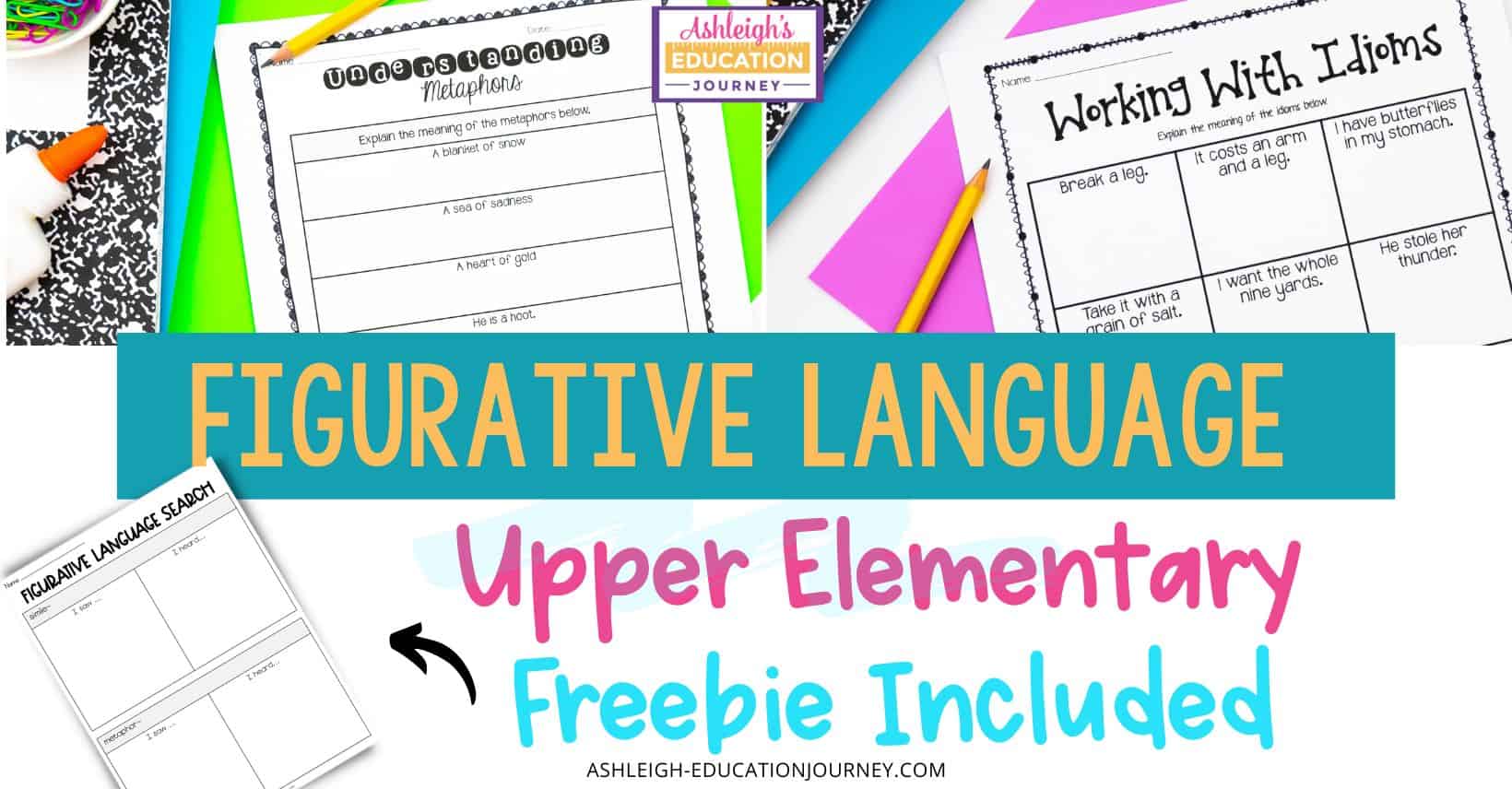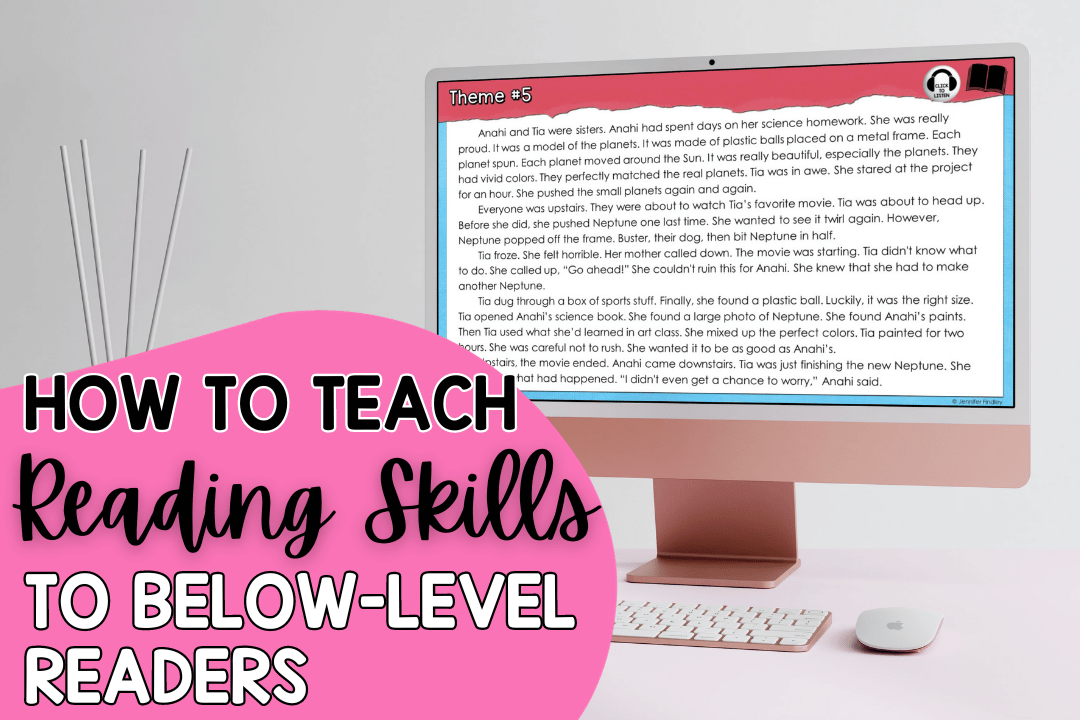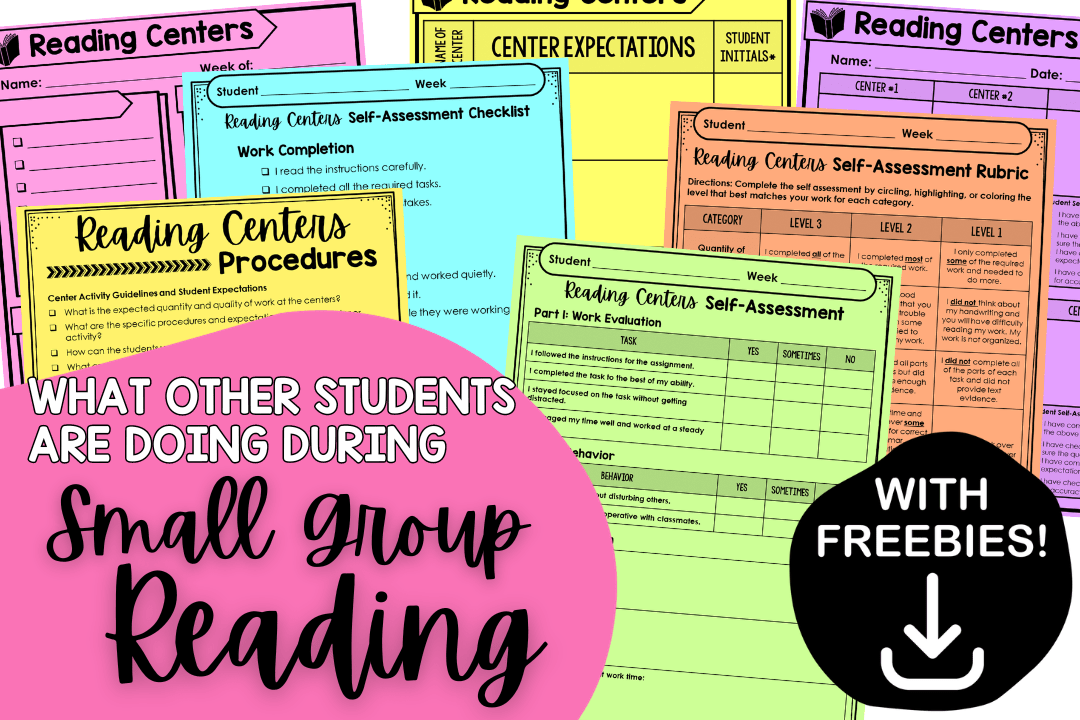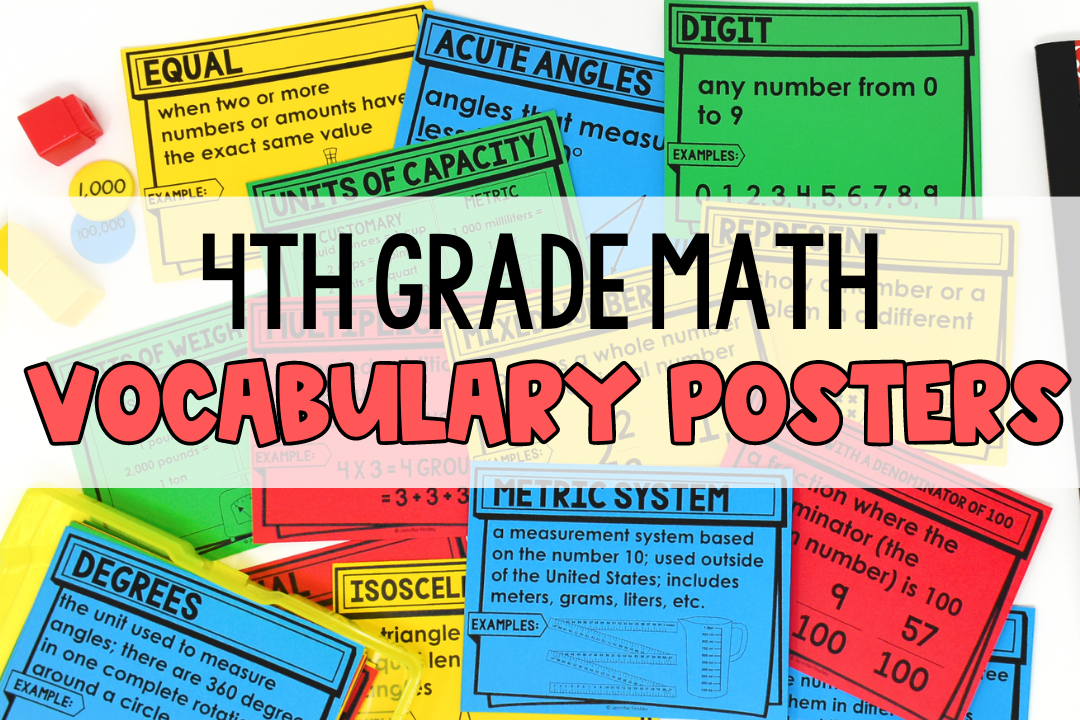Figurative language worksheets, activities, and lessons can be so much fun! I begin the unit with a brief overview of figurative language. Students should be familiar with the terminology and its use before analyzing poems. Students then dive in to more in-depth figurative language lessons.
Figurative Language Worksheets & Activities
Similes
A simile is when you compare two unlike things using the words “like” or “as”. These are typically familiar to students, so I like to give everyone a chance to share similes they are familiar with. A great mentor text for teaching similes is Fiona’s Luck. As you read, have students listen for the words ‘like’ and ‘as’. They may even want to jot the phrases down on a sticky note during the read aloud. After reading, students can complete the figurative language worksheet on similes for additional practice.

Metaphors
After teaching similes, I introduce metaphors. A metaphor compares two things by saying that one thing is something else. Metaphors are always quite a bit more challenging for students than similes. However, I do give them the opportunity to share a metaphor they’ve heard or read. My School is a Zoo is a great mentor text for teaching metaphors. As you read, have students listen for examples of similes and metaphors. After reading, allow students to share examples from the text. For practice working with metaphors, have students complete the metaphors activity.

Idioms
I like to introduce idioms by using an idiom in a general conversion with my class. For instance, if it’s raining, I may say “It’s raining cats and dogs” but any idiom will work. After I say the idiom, I ask the class if they think that I really meant what I said. I use their response to lead in to the lesson. Once again, I give students time think of an idiom that you use in general conversation. The book Birds of a Feather: A Book Idioms and Silly Pictures is a great mentor text for teaching idioms.
For extra practice, have students complete the idioms activity. In the lesson, students explain the literal meaning of several different idioms, and they write two idioms and draw a picture of what the idiom literally says and then explain what it actually means.


Adages and Proverbs
A special type of figurative language is an adage or proverb is a saying that offers advice. For example, one of my favorite sayings is, “If you don’t have time to do it right the first time, you must have time to do it again.” That simply means that if you don’t do something right the first time, you’ll have to do it again. Give students time to share any sayings they frequently hear or say. A great mentor text for teaching adages and proverbs is Now & Ben: The Modern Inventions of Benjamin Franklin.
After reading the book, I like to have students complete the graphic organizer below. It’s also fun to have students develop their own adages and proverbs.
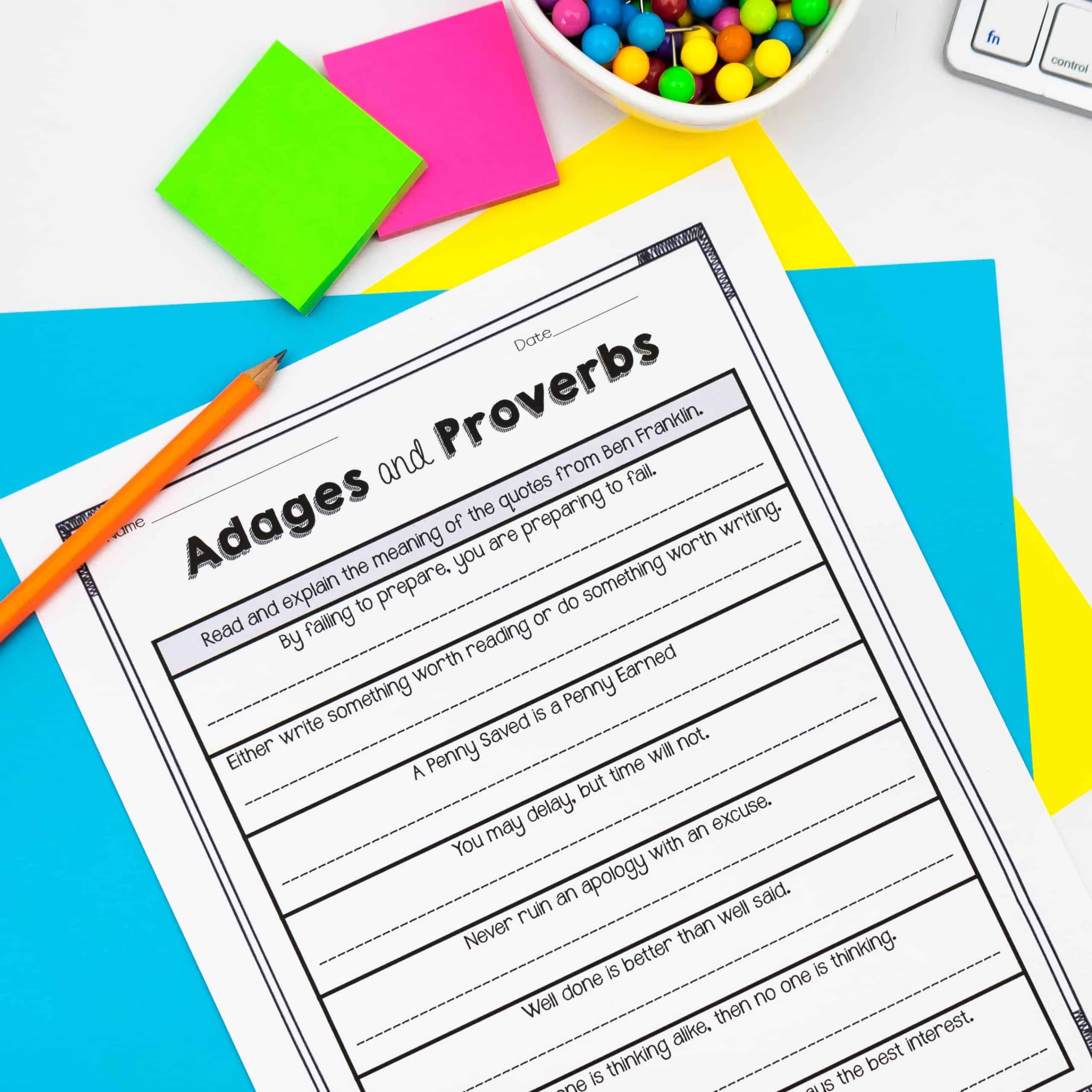
Figurative Language Worksheets
Alliteration, Hyperbole, Personification, Onomatopoeia, Oxymoron
While my reading standards don’t specify other forms of figurative language, I don’t stop at the minimum. I add additional lessons to my figurative language instruction. While I may not teach these for mastery, I introduce the terms, so that students are familiar with these additional types of figurative language. After introducing the words, students go on a figurative language search and look for different written and oral examples. You can download the graphic organizer, which includes similes, metaphors, idioms, adages/proverbs, alliteration, hyperbole, personification, onomatopoeia, oxymoron, and puns here.
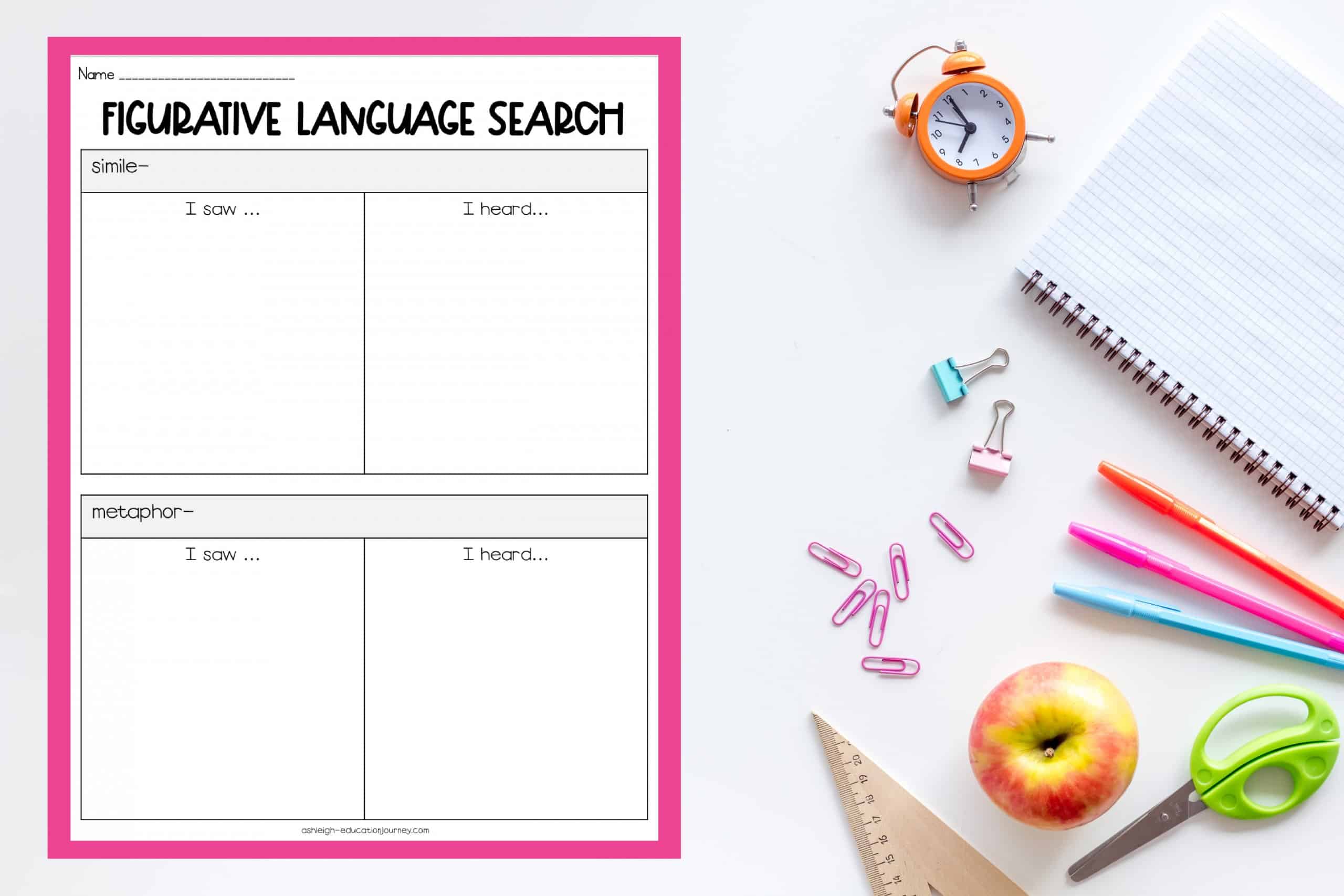
Student Favorite
A GREAT way to review figurative language is through music. I found an amazing collection of songs on YouTube with great examples of figurative language. You can find the video here. Of course you definitely want to preview the video first. I typically skip a couple of the songs, because they’re not the right fit for my students.
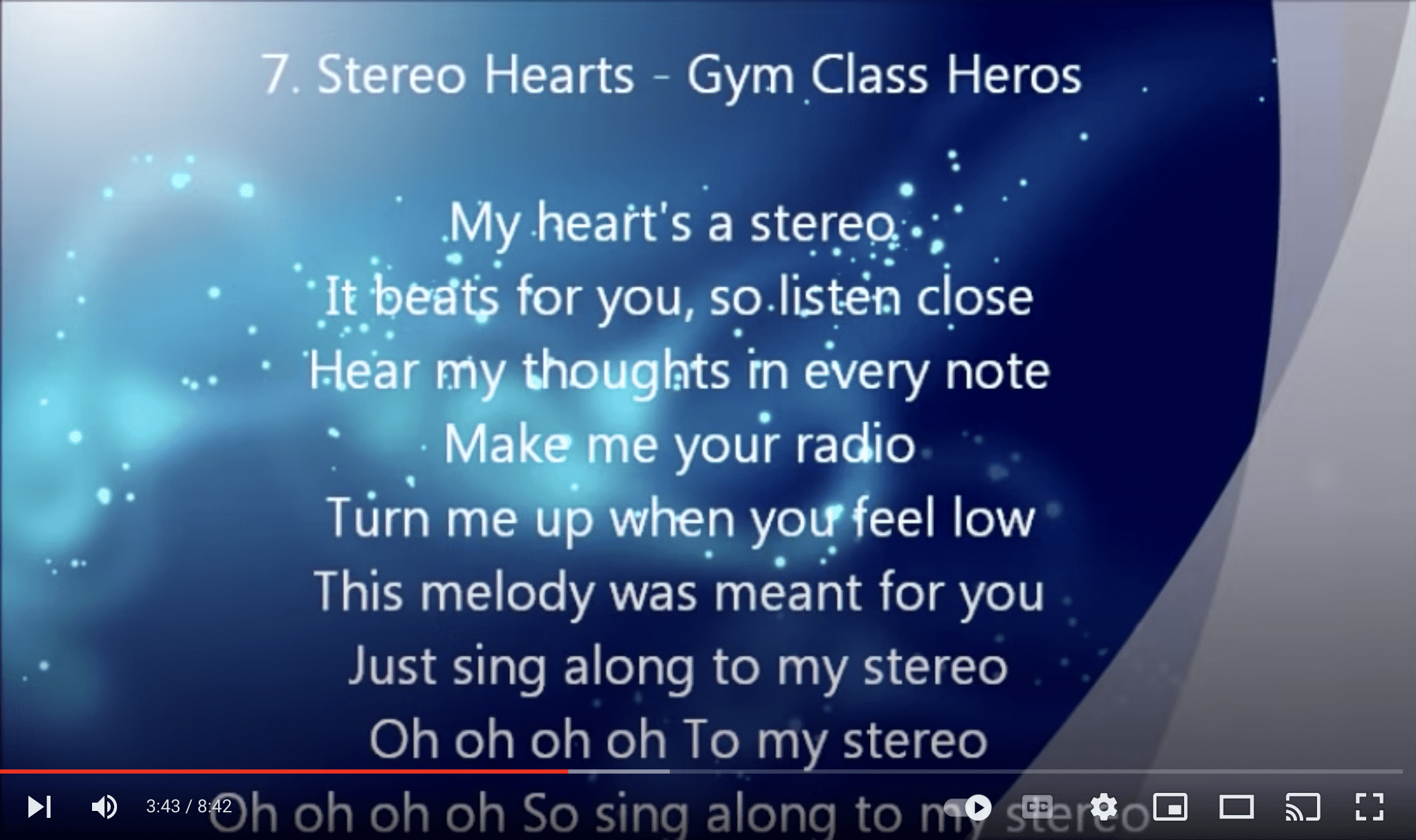
Hopefully you were able to get a few new ideas for teaching figurative language with fun figurative language worksheets and activities. Stay tuned for how I tie this in to poetry! If you’d like to read more about teaching reading to upper elementary students, be sure to check out this post!
Related Posts
